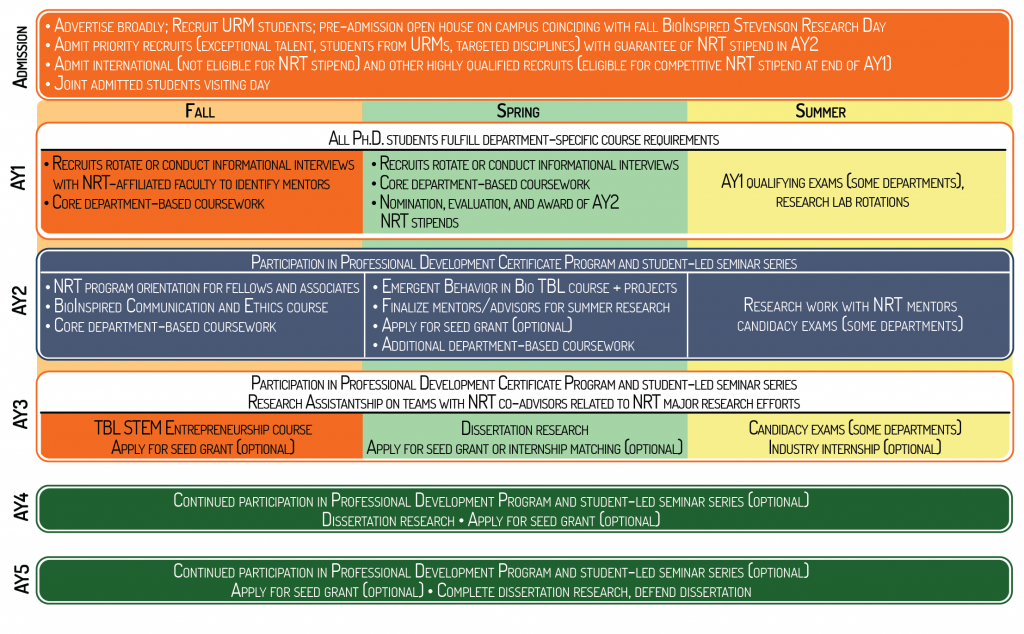Our education and training program is built to address the critical need—in industry, government, and academia—for scientists and engineers who have core disciplinary skills and technical tools, as well as team-building skills that will allow them to predict and design emergent intelligence in both living and bio-inspired systems. The training elements of the NRT are designed to achieve the following impact:
- increase the diversity of interdisciplinary scientists/engineers in academia, government, and industry by implementing pedagogical best practices for retention of URM students
- build a cohort of future scientists who possess specific team-building skills – the technical, interpersonal, ethical, and communication skills and practical experiences that enable them to create teams that cross barriers between the physical and life sciences and engineering
- prepare trainees to harness emergent intelligence in biological and bio-inspired systems
- expose students to entrepreneurship with explicit hands-on industry training opportunities.
We accomplish these impacts with a coordinated program of coursework, non-credit-bearing professional development opportunities, and integrated interdisciplinary research projects throughout graduate study. In brief:
- Year 1: EmIRGE-Bio trainees take required disciplinary coursework in their home departments
- Year 2-3: trainees take NRT-specific courses (3), begin their research, and start professional development programming
- Years 3-5: trainees continue professional development activities and focus mostly on dissertation research
Curriculum overview and timeline

